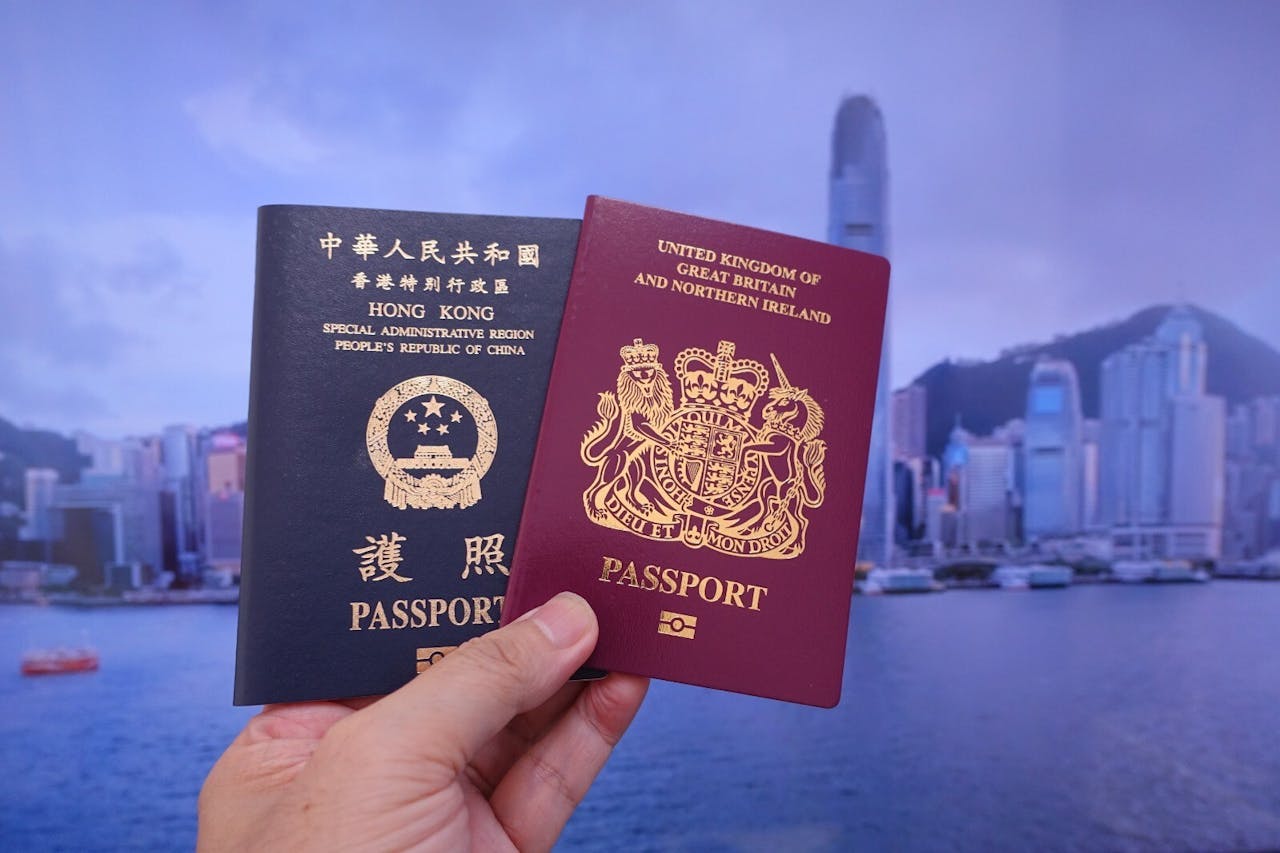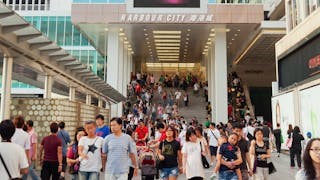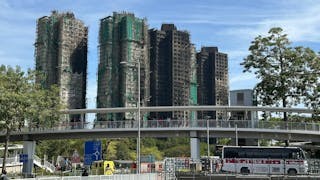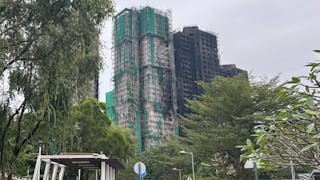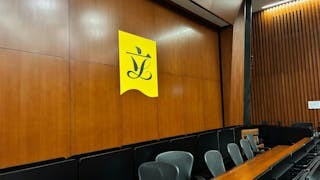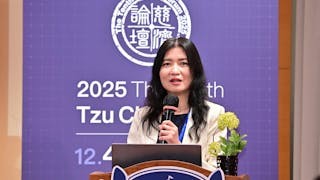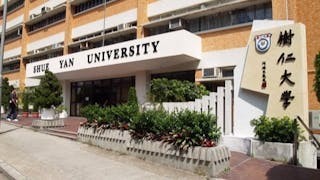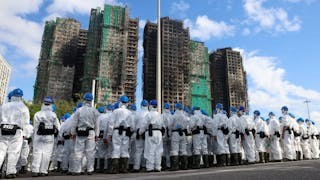中國政府不承認英國國民(海外)護照的舉措,不僅是對英國政府居留簽證計劃的回應,而且對於愛國準則、移民趨勢和香港的資金外流也會產生影響。
2021年1月29日,中國外交部發言人趙立堅表示,從1月31日起,中國將不再將BNO護照視為旅行證件和身份證件,並將保留採取進一步行動的權利。
2020年6月下旬,北京在香港實行《港區國安法》後,英國政府視作違反《中英聯合聲明》,並容許BNO護照持有人申請居留簽證,以便在英國逗留更長的時間,只要他們符合所有法律要求,就可以申請居留和取得英國國籍。
2021年1月12日,行政長官林鄭月娥表示,如果任何人違反中英雙方就BNO定位旅行證件的共識,另一方「自然會有所行動」,這意味着中國政府和特區政府必然會採取對策。
居留和投票權可能受到影響
據報道,截至2020年2月,約35萬香港人持有BNO護照。 最近,有報道指即將在3月召開的全國人民代表大會將討論「剝奪」BNO持有人在香港地方選舉中的投票權。
中國終止承認BNO護照,香港人不能使用BNO護照在香港出入境,但如果BNO護照持有人到其他國家,他們能否入境,則取決於目的地是否承認BNO護照。
基本法委員會副主任譚惠珠表示,北京的反制措施不會影響香港人的居住權利,但會影響BNO護照持有人在海外的領事保護權。 她又說,那些在香港擁有居留權及其他國籍的人士不受影響。
全國港澳研究會副會長劉兆佳則預測,中國政府將採取更強有力的措施,以應對透過BNO護照取得英國國籍的人士,例如取消其香港永久居民的身份。
公民身份是具政治含意
香港BNO護照持有人的英國居留簽證計劃,以及中國政府的反制措施,清楚表明了公民身份的政治性。 這種公民身份變化的政治含意,包括了三個方面:愛國主義的準則、一些香港人的移民趨勢,以及資金從香港外流到英國的預期趨勢。
首先,中國政府的反制措施,反映對香港人尤其是公務員政治忠誠度的關注,公務員不僅要遵守《基本法》,而且還必須遵守《港區國安法》。 由於一些公務員持有BNO護照,當中一些人可能會申請英國國籍,因此中國當局可能質疑他們的政治忠誠度,意味着可能會更嚴格要求較高級的香港公務員作出聲明和核查其公民身份。
其次,香港傳媒推測,儘管中國終止承認BNO護照,但仍會有許多香港人移民到英國和其他國家。 2020年10月,香港中文大學進行的一項調查發現,在737名受訪者中,約有15%透露他們準備移民到其他國家的計劃,而那些打算移民的人,則將英國(23.8%),澳洲( 11.6%),台灣(10.7%),加拿大(9.3%)和美國(5%)作為移民目的地。
第三,據路透社1月中的一份報告中表示,根據美國銀行的評估,那些想藉BNO居留計劃移民英國的香港人,將引發2800億港元的資金外流。英國內政部2020年估計,到2021年,將有153300名擁有BNO護照的香港人抵英,並預計未來5年將有321600名港人離港赴英。美國銀行估計,從香港外流到英國的總金額,可能在5年內達到5880億港元。
留島不留人?
不過,最近也有一些經濟學家估計,由於許多中國內地公司從美國撤出,並打算在香港股票市場上市,這種現象也許會抵銷香港向其他國家的資金外流。
一些評論者指出一種「新」現象,即中國當局採取的強硬政策,即所謂「留島不留人」,產生一種替代本地人口的現象,愈來愈多內地人不斷移民到香港居住,而愈來愈多的本地人逐漸離開香港前往其他國家或地方,這將創造一種「新香港人」。
總之,拒絕承認BNO護照的政治行為,可視作中國對《港區國安法》頒布後,對英國居留簽證計劃的反制措施。這對公務員和民選政客有較大影響,他們的政治忠誠度是根據其合法公民身份來衡量的。不過,不承認BNO的政治行為卻無法阻止一些香港人向外移民,以及資金外流的必然趨勢。
The BNO De-recognition in Hong Kong: Implications for Patriotism, Emigration and Capital Outflows
The move by the Chinese government to derecognize the British National Overseas (BNO) passports of some Hong Kong people is not only a response to the immigration scheme of the UK government but also carrying implications for the scope of patriotism, the trends of emigration and capital outflows in the Hong Kong Special Administrative Region (HKSAR) of the People’s Republic of China (PRC).
On January 29th, 2021, the PRC Foreign Ministry spokesman Zhao Lijian said that, from January 31stonwards, China would no longer recognize the BNO passports as travel and identity documents, and that it would reserve the right to take further actions.
After the National People’s Congress (NPC) of the PRC enacted the Hong Kong national security law in late June 2020, the UK government regarded the law as a “breach” of the Sino-British Joint Declaration and it allowed the BNO passport holders in the HKSAR to apply for visas to enter and stay in the UK for a longer period, leading to their settlement and British nationality provided that the applicants would meet all the legal requirements.
On January 12th, 2021, the HKSAR Chief Executive, Carrie Lam, said that if anyone had unilaterally deviated from the consensus over the BNO matter, it would be a “matter of course for the other party to take action,” implying countermeasures to be taken by the PRC government and the Hong Kong administration.
Her comments were made after a pro-government elite, Regina Ip, remarked that the Hong Kong government should consider adopting the PRC’s nationality law that disallows dual nationality status. She called on the PRC authorities to forbid the action of obtaining dual nationality by revoking the right to reside and vote in Hong Kong for residents who acquire foreign citizenship.
Even before the announcement of derecognizing BNO passports made by the PRC Foreign Ministry, some Hong Kong civil servants had expressed their alarm at a report pointing to a possible move by China to ban those Hong Kong people with BNO passports from holding public office. The local Hong Kong media speculated that the PRC government might do so as a response to the British move of allowing BNO holders to apply for the British right of abode and citizenship. It was unclear whether “public office” refers to both civil servants and elected politicians.
As there are some civil servants who are holding BNO passports, their attempts at applying for the right of abode and later citizenship in the UK would perhaps run the risk of being seen as politically “unpatriotic” or “disloyal,” especially at a time when PRC authorities have been emphasizing that the HKSAR should be governed by “patriots” ruling Hong Kong.
In February 2020, it was reported that some 350,000 Hong Kong people were holding BNO passports. Recently, there have been reports saying that the upcoming NPC meeting in March 2021 would discuss the issue of depriving the rights of BNO holders to vote in local Hong Kong elections.
From the perspective of ordinary citizens, citizenship entails three dimensions: legal, political, and socio-economic. Legally, a citizen who gets a citizenship document can use it to travel overseas and return to his or her home country. Politically, the right to vote and participate in elections is significant. Socially and economically, a citizen can acquire socio-economic benefits, such as the eligibility of applying for social housing, getting reductions in public transport fares if they become older, and having access to public health care.
The PRC derecognition of BNO passport holders means that the Hong Kong people cannot use BNO passports to return to the HKSAR. If the Hong Kong people who hold BNO passports visit other countries, their entry to these places depends on whether their BNO passports are recognized by the visiting destinations.
On January 29th, Regina Ip told the Hong Kong media that some foreign countries friendly toward the PRC may respond to the Chinese Foreign Ministry’s request that the BNO passports are not recognized as travel and identity documents.
On the same day, Maria Tam, a deputy director of the Hong Kong Basic Law Committee, said that the PRC Foreign Ministry’s announcement on BNO would have no impact on the right of abode of the Hong Kong people, and that the Hong Kong BNO passport holders would no longer enjoy the PRC consular protection in overseas countries. She added that those Hong Kong people who have the right of abode and who have other nationalities in the HKSAR “are temporarily not affected.”
Tian Feilong, an associate professor in law at the Beijing University of Aeronautics and Astronautics and a member of the Hong Kong Macau Study Association (HKMSA), said in an interview with the Hong Kong Cable TV on January 29ththat the PRC move was a response to the British “violation of the Joint Declaration,” and that the NPC Standing Committee later would likely interpret the nationality law by depriving the political right of BNO passport holders who get British citizenship to vote in Hong Kong and to have access to local welfare. Tian added that the status and rights of those Hong Kong people who just hold BNOs but who do not use it, or who possess other nationalities, would not be affected.
Lau Siu-kai, a deputy director of the HKMSA, predicted that the PRC government would take stronger measures in response to the UK citizenship scheme for Hong Kong BNO passport holders. He claimed that the PRC may not recognize the British citizenship of those Hong Kong people who acquire it through the UK citizenship scheme.
The UK citizenship scheme for the Hong Kong BNO passport holders, and the countermeasures from the PRC government have clearly demonstrated the politics of citizenship. The UK government formulated and has implemented the new scheme in response to the enactment of the Hong Kong national security law by the NPC, while the PRC Foreign Ministry’s derecognition of the BNO passports has become a countermeasure in response to the change in the right of abode of BNO passport holders.
The implications of the politics of citizenship change embrace three areas: the meaning of Chinese patriotism, the trend of emigration of some Hong Kong people, and the predicted trend of capital outflows from Hong Kong to the UK.
First and foremost, the PRC’s countermeasure coincides with its concern about the political loyalty of Hong Kong people, especially civil servants who are now required to not only uphold the Basic Law but also the national security law. Due to the fact that some civil servants are holding BNO passports, and that some of them may apply for UK citizenship, their political loyalty would likely be questioned by PRC authorities. The implication is that at the higher level of the Hong Kong civil servants, a more rigorous declaration and check on their citizenship may be undertaken.
From another angle, the increasingly rigorous requirement on public officials, including both civil servants and elected officials, is inevitable. Given the emphasis of the PRC leaders on the need for the HKSAR to be governed by “patriots,” as mentioned by President Xi Jinping in his video meeting with Chief Executive Carrie Lam and Liaison Office (LO) director Luo Huining on January 27th, as Lam delivered her duty report to both President Xi and Premier Li Keqiang, these patriots are naturally expected to hold HKSAR passports without foreign citizenship.
It is noteworthy that, for the first time in the history of the HKSAR, the LO director accompanied the HKSAR Chief Executive in the annual duty report to the PRC President – a significant move illustrating the increasing status of the director after the enactment of the national security law in late June 2020.
Second, there are speculations in the Hong Kong media that, despite the PRC move to derecognize BNO passports, many Hong Kong people would still emigrate to the UK and other countries. In October 2020, a survey conducted by the Chinese University of Hong Kong found that about 15 percent of the 737 respondents revealed their preparatory plans to emigrate to other countries, and that those who intended to emigrate considered the UK (23.8 percent), Australia (11.6 percent), Taiwan (10.7 percent), Canada (9.3 percent) and US (5 percent) as their destinations.
According to some Hong Kong media reports, a minority of Hong Kong’s middle-class parents have already left the HKSAR for the UK. Perhaps due to the fact that many protestors who participated in the 2019 anti-extradition movement were young people, some of their middle-class parents have been so concerned about the prospects of their children in view of the arrests and prosecutions of some protest activists that family emigration became their choice.
Third, in mid-January a report by Reuters said that, according to the assessment by the Bank of America, those Hong Kong people who move to reside in the UK through the BNO scheme would trigger capital outflows of HK$280 billion. The UK Home Office in 2020 estimated that 153,300 Hong Kong people who possess BNO passports would arrive in Britain in 2021. Moreover, it predicted 321,600 Hong Kong people would leave the HKSAR for the UK in the coming five years. The Bank of America anticipated that the total capital flight from Hong Kong to UK might reach HK$588 billion within five years.
However, a few economists have recently assessed that, due to the withdrawal of many mainland Chinese companies from the US and their move to be listed in the Hong Kong stock market, this phenomenon would perhaps offset the capital outflows of the HKSAR to other countries. It remains to be seen whether this assessment would really be accurate.
Politically and demographically, some commentators have pointed to a “new” phenomenon that PRC authorities have been adopting a hard-line policy of “leaving the island (HKSAR) alone but not the people (who are politically ‘unpatriotic’).” Critics of the PRC’s policy toward the HKSAR have believed that a kind of replacement of the local population is taking place, with more mainlanders migrating constantly to reside in the city while more locals gradually leaving Hong Kong for other parts of the world than before. A kind of “new Hong Kong people” is to be created, according to these critics.
In conclusion, the politics of derecognizing the BNO passports can be seen as a swift reaction of the PRC to the revised UK citizenship scheme after the enactment of the Hong Kong national security law. It has tremendous implications for patriotism, especially at the level of civil servants and elected politicians, whose political loyalty is measured in terms of their legal citizenship. The politics of BNO derecognition cannot arrest an inevitable trend of outward emigration of some Hong Kong people, together with their capital outflows. Perhaps a silent revolution is undergoing in the HKSAR where a new type of Hong Kong people is emerging – they are expected and required to be far more patriotic and more politically loyal than ever before.
原刊於澳門新聞通訊社(MNA)網站,本社獲作者授權轉載。



